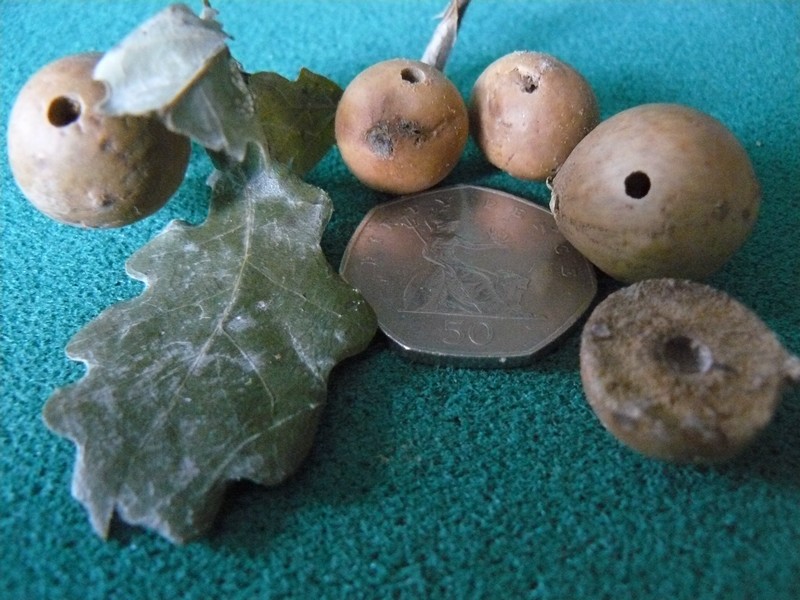MIKE STEER'S NATURE
NOTES

From time to time over the winter
months Bowdon's own David Attenborough
(ie. Mike Steer) is going to produce some
notes on nature for the website.
You would be
amazed at the variety of wildlife within the
boundaries of our club. I am not referring to the
various things we get up to but the creatures
which go virtually unnoticed in our midst. In mid
September, whilst playing on lawn 2 or, to be more
precise, whilst my opponent played on lawn 2, I
sauntered along the east boundary in search of
inspiration and spotted what I thought were oak
apples on a small oak sapling. I have since found
out that they are actually called oak marble galls
(also known as oak nuts).
They are quite small and hard whereas oak apples
are much larger and spongy. I picked some of these
and took them home. Days later I noticed that some
had escape holes in them rather larger than
woodworm holes but still only the diameter
of a panel pin. I popped the remaining galls
into a jar with a lid and sure enough a day or two
later there were some winged creatures in the jar
(still alive). They turned out to be the
tiny gall wasp Andricus kollari. They had not
suffocated, I am pleased to say, and I released
them to carry on their truly remarkable life
cycle.

Galls with exit
holes and 50p piece to show relative size.
Bottom right hand gall has been sawn
through showing the tiny chamber in
the centre.
The
emerging females from our galls are agamic
(need no male to reproduce). They
seek out a specific oak, the Turkey Oak, and lay
their eggs in the buds,which then develop over the
winter and emerge as sexual wasps in spring. After
mating the females, from this spring hatching,
seek out any of a number of members of the oak
family and lay their eggs in the buds. These buds
then become the 'oak nuts' or galls. Originally
the two wasp generations were thought to be
different species until it was realized that they
were two generations of the same species. The Oak
Marble Gall Wasp was introduced into the UK in the
1800s from the middle east. Despite concerns,
according to the Wildlife Trust, there have not
been any serious consequences yet.
Mike Steer
|